In Focus: Abandoned boats on the rise – who is paying the price?
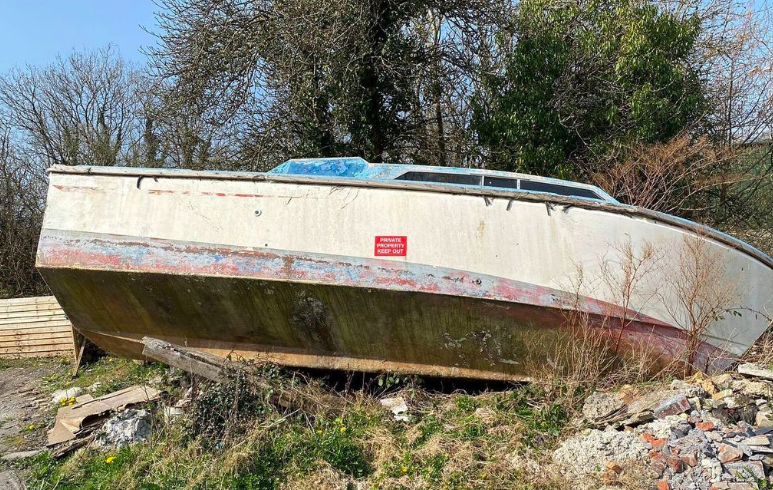
Three years ago MIN ran a series of articles by Luke Edney looking at the burgeoning problem of end-of-life fibreglass yachts and how to get rid of them responsibly. At the time Edney, communications manager for Gosport’s Boatbreakers, bemoaned the lack of interest in the issue, the lack of leadership, the lack of plans to tackle the challenges. He claimed the industry was suffering from an extreme case of sloping shoulders as more and more fibreglass hulls were abandoned around the UK coastline.
Now, he says, people are talking about the issue, it’s on the agenda but not much is actually changing.
“Boats are becoming older and older, wave after wave of them. If you fall on hard times, you think with your wallet. People may want to do the right thing. But without having a paper trail behind you, people will just abandon their boat and it falls onto whoever owns the land they’re dumped on to get rid of them.”
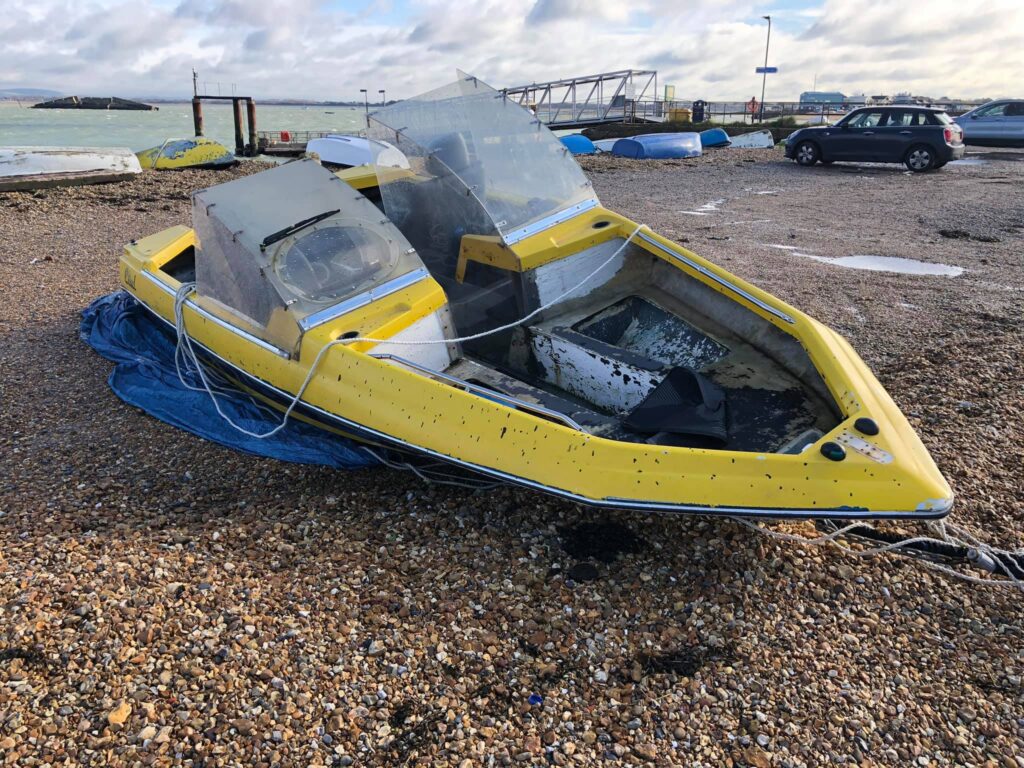
Calls for boat ownership registration
It’s the paper trail that Edney is keen on seeing into practice. He recently attended an online event run by DEFRA, which brought companies like Boatbreakers, marinas and harbour masters together.
“They asked us loads of questions. A company [Resource Futures] was commissioned to get the ball rolling on what can be done,” says Edney.
But he’s somewhat cynical about what changes can be made effectively. “We can’t get anything right in this country. The NHS, trains. We pump sewage into rivers. I can’t see the government caring about getting boat disposal right.”
That said, Edney is tentatively welcoming to a boat registration scheme that was re-proposed at the DEFRA meeting (he outlined the case for one of these in MIN in 2020). Something that would hold owners to account if they dump a boat, although he warns that “if you get hot on registration then you might push people to just dump them now. Anything you squeeze owners with might cause more problems.
“But this has to be the first step. We need to make it harder for people to dump boats. Cars get scanned and the owner gets a bill. With boats it’s a bit more grey. It has to start at registration.”
Ross Wombwell, head of technical services at British Marine, says the company which DEFRA commissioned, Resource Futures, is mapping the number of current abandoned boats in the UK (both at inland waterways and along the coast); identifying barriers to correct disposal of leisure marine craft; and putting forward different policy options for government to adopt.
“We have met with the external organisation commissioned and are now awaiting their final report, being able to Identify the scale of the number of abandoned vessels in the UK is a fundamental part of ensuring that the correct solutions are found,” says Wombwell. “Currently we have anecdotal information on the scale of vessel abandonment but no detailed numbers.”
DEFRA says Resource Futures report should be available shortly. It’s hoping to publish in August 2023.
End-of-life boat solutions
Edney is looking to European countries in the hope the UK can cherrypick other best systems, like France’s where (simply put) the boatbuilder pays a fee for each new boat sold into a larger fund which then underpins ‘free to owner’ end-of-life schemes. Scrapping a boat responsibly can be an expensive business, so making that process free is important. As Edney points out, the last owner of a boat is often the poorest in the buying chain, the one who literally can’t afford to be sustainable.
“In the UK it would make sense that there’s a fund paid into when a boat’s built, or insured, to help with this,” he says. “Little contributions made into a pot of money which can be used to bring the cost down or do it for free.”
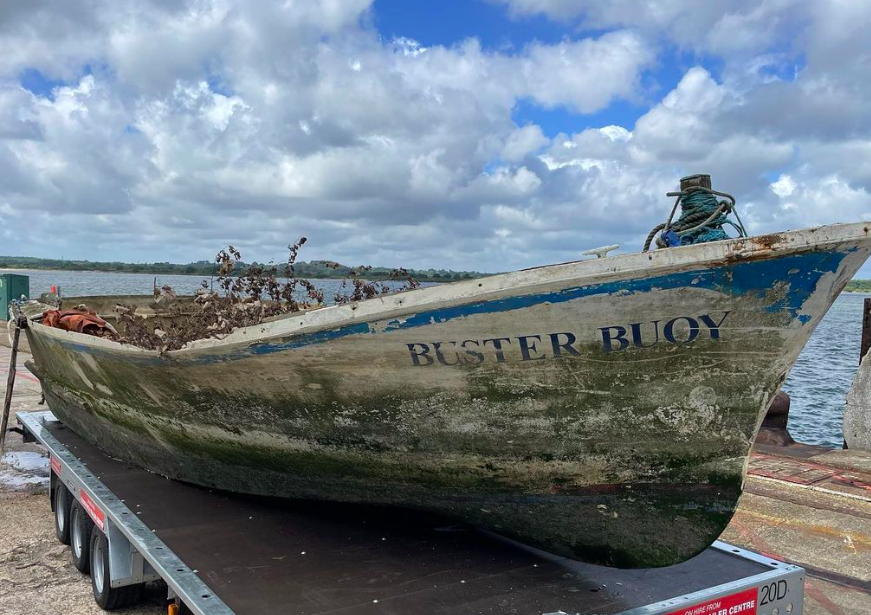
Edney says the current French system – with boatyards and a custom site for stripping boats being proposed in Nice – was based on an EU scheme that the UK was involved in developing back in 2014. Boatbreakers was then due to take part in an EU university study, collecting and processing boats for disposal, but Brexit collapsed the whole project. He says “Europe’s moving on but we’re left behind.”
Wombwell says things are continuing in this area, but there are no simple answers.
“We understand that some companies and organisations within the sector would like to see faster movement, possibly implementing greater regulatory requirements placed upon both the industry and users but we have to ensure we are able to bring both manufacturers and the end users along on this journey of change. We have a very unregulated marine sector and implementing national schemes to meet the environmental challenges that have been identified is not as simple as it may seem, with no mandatory registration and no navigational licensing, unlike many EU countries.
“We have engaged with the Department for Transport on the recently passed Merchant Shipping (Watercraft) Order 2023, for in-use pleasure craft regulation, and are continuing discussions with external stakeholders on other possible changes to registration and ownership identification to support greater enforcement of existing regulation on waste disposal,” says Wombwell.
UK’s shameful lack of policy
In Feb 2020, Edney told MIN “All of the different ideas being worked on in other countries put what’s being done in the UK to shame. We currently rely on the honesty of the last owner of the boat to stump up the cash to scrap the boat.”
That honesty is still the UK policy, and Edney predicts it’s about to get a whole lot more complicated. That’s partly because of the long-term effects of covid.
Edney was worried about the effects of covid on abandoned boats prior to the first lockdown. Now he says his fears have come true. People who couldn’t access their boats for two years are abandoning them as it’ll cost more to repair them than they’re worth. Then there’re the owners who paid over-the-odds for a second hand boat during lockdowns and now resent them, especially as the cost of living keeps on going up and up and up.
Marinas squeeze boat owners
“Some marinas put their prices up by a third and squeezed the life out of people last year,” says Edney, “we saw the effects immediately. Lots of people are trying to bail out of their boats.
“At the end of the day, a boat’s a luxury item. If your mortgage and bills go through the roof, the boat’s got to go. If someone can’t sell the boat as they haven’t looked after it, and prices go mad, they abandon or scrap them. That’s the real world.”
And while he notes that lots of owners try to be responsible about where their boat goes to, too many are abandoned, leaving them to pollute the environment and far too many go into landfill.
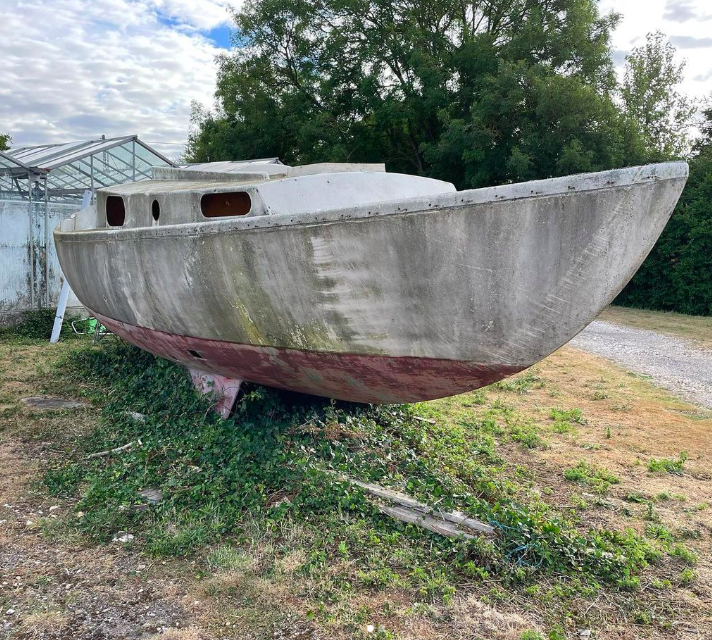
Edney’s also not enamoured with a rash of companies that have sprung up, citing green credentials, who purport to rehome boats sustainably. He says that too many of these are actually brokerage companies, which take a family’s prize possession for the last 40 years and then sell it to a ‘dreamer’ for a ridiculously cheap amount.
“This is a potential issue passing boats from responsible owners onto dreamers who can’t really afford it and bite off more than they can chew. Because it’s quite easy to sell the dream of a boat but the reality of storage and repair means they can soon lose the love for it and if they’ve just taken it on for cheap, they haven’t made a decent investment, people walk away. It’s too easy.”
Owners passing the buck
In his position, Edney hears a lot of stories about companies and clubs picking up the pieces. Like an owner who paid a month’s mooring for a super cheap yacht he’d grabbed, took the mast and was never heard of again. He’d provided false details to the marina which then couldn’t recover the cost of clean-up. Another incident involved a sailing club, where a chap paid to store his boat for ten years (£600 in total), but then disappeared leaving the club to pick up the scrappage charges (far outstripping the ten years of rental income).
Worse than this, Edney says the clubs and marinas have to pay the legal fees to ‘claim’ the abandoned yachts, and once that’s done, take care of the scrappage fees on top. “It’s like taking yourself to court to get permission to clean-up the rubbish someone else has fly tipped in your front garden,” he says. No wonder he’s advocating for a free end-of-life scheme, to stop the pollutants from rotting fibreglass entering the waterways.
The challenge with that, should it ever come to fruition, will be “who controls the pot. That’s the problem,” says Edney. “We need a centrally controlled fund. Can you trust the government to do that?
“British Marine are hot on talking about it and trying to promote the issue,” he says, “but we get nothing from them in terms of support except a few buzz words on an article.
“There’s more talking shops, still no leadership and little action.”
The best outcome – but one that’s not about to happen anytime soon – says Edney, is there being a demand for recycled fibreglass. If that happens, boats won’t end up in landfill or abandoned.
Wombwell says British Marine is continuing its support of the Composite Leadership Forum Sustainability Committee, working with other sectors to identify suitable disposal technologies for waste fibreglass, and supporting companies currently investing in these new technologies, testing and trialling both recycling processes and new uses for the end materials.
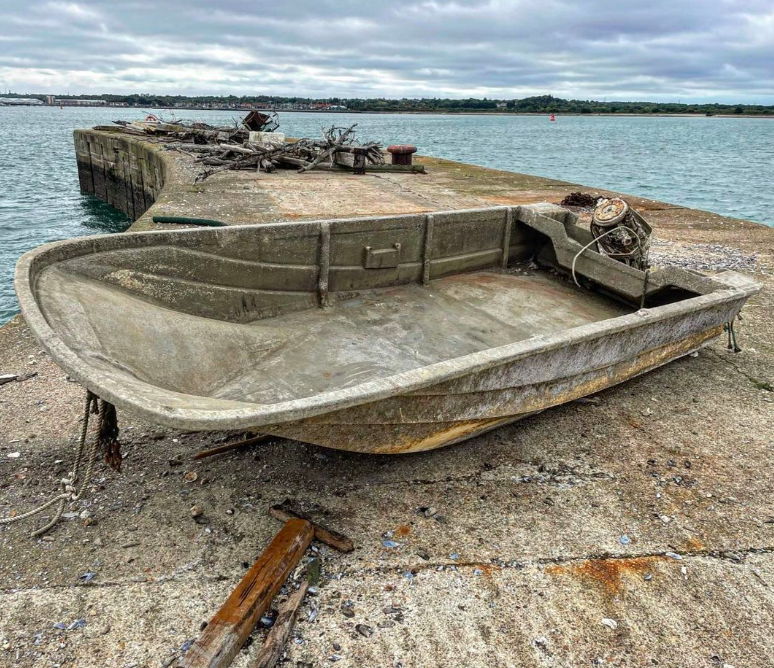
“So much work from so many people needs to happen to fix the issue of abandoned boats,” Edney says. “Fibreglass needs to be recyclable. That needs to be supported. There needs to be facilities to strip boats, and industries which can use the fibreglass. Is there an appetite to make this happen? We’ll see.”
All images courtesy of Boatbreakers.













Hi
It would be a good practice to at least mention other companies operating on this market
https://www.boat-disposal.co.uk/
https://trurorecycling.co.uk/
https://www.gilpindemolitiongroup.com/marine-demolition-services/
Well said, Luke. You have been banging the drum about end of life boats for a long time. The gulls are coming home to roost, but the competent authorities are still asleep at the wheel.
Peter
Indeed.
But ‘others’ have been banging this drum for years.
I wrote in Anglian Afloat about the problem, a decade ago, and have oft written about it since.
BBC Wakes and South West also had web pieces too.
I agree with article, but this is not the only voice on this subject!
Der soziale Aspekt, der den letzten Eigner trifft, ist sicherlich nicht zu unterschlagen. Den Menschen aber zur Ehrlichkeit zu erziehen, dürfte sich seit 2000 Jahren eher ins Gegenteil entwickelt haben. Obwohl das Thema Umweltschutz wichtiger denn je ist.
Ein Vorschlag: Das Boot wird ähnlich dem Auto zweifelsfrei markiert und sollte der Besitzer unauffindbar sein, was am Kontinent oft genug ob der vielfältigen Fluchtmöglichkeiten passiert, wird über den durch die Bootsteuern gefütterten Fonds das Fahrzeug verwertet.